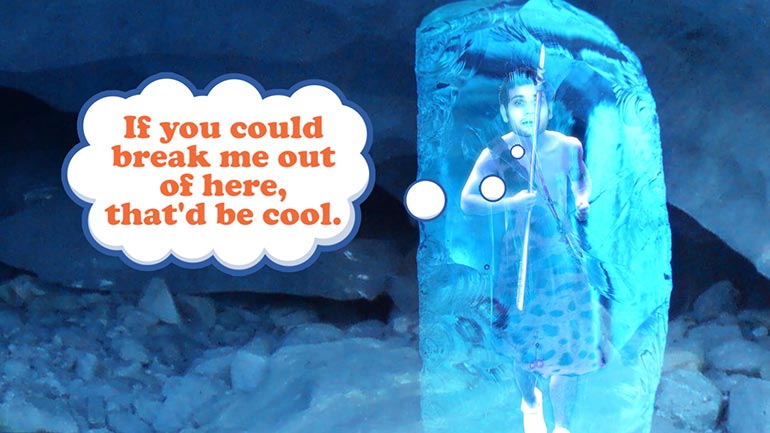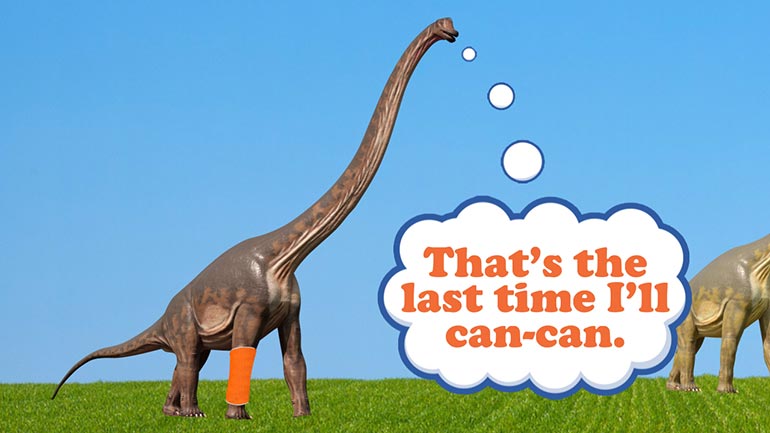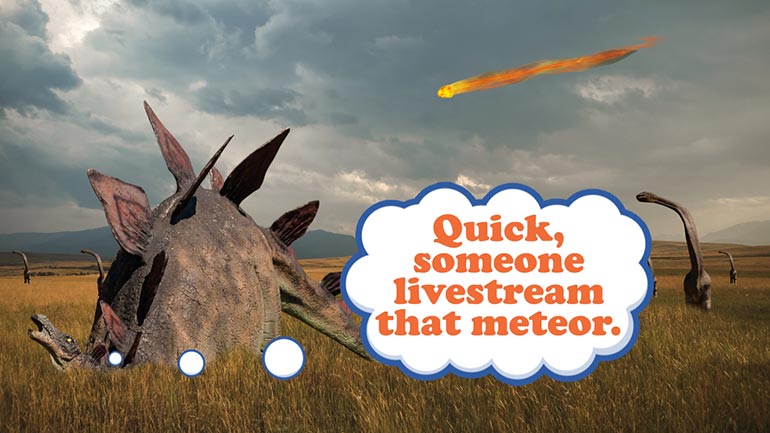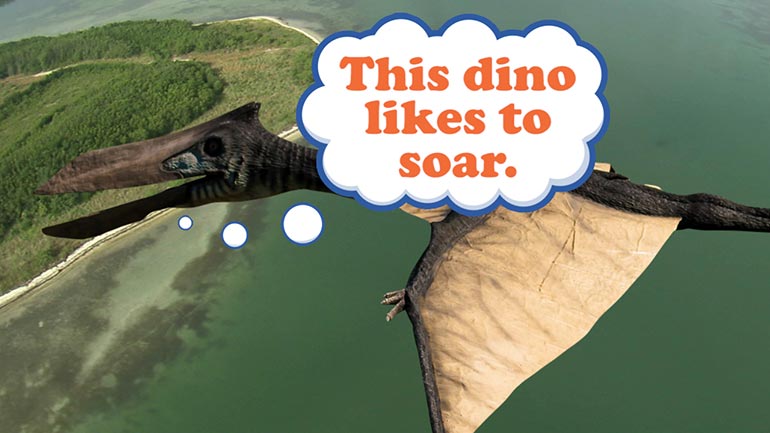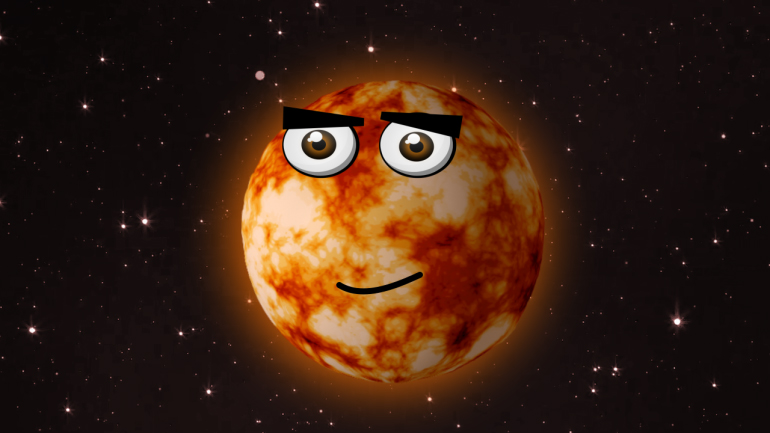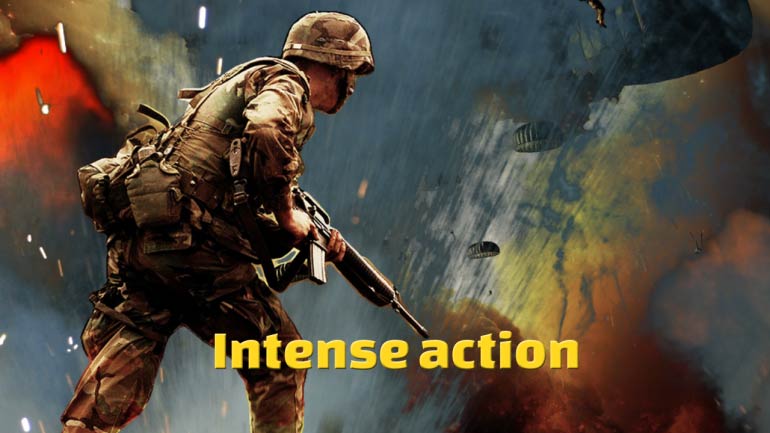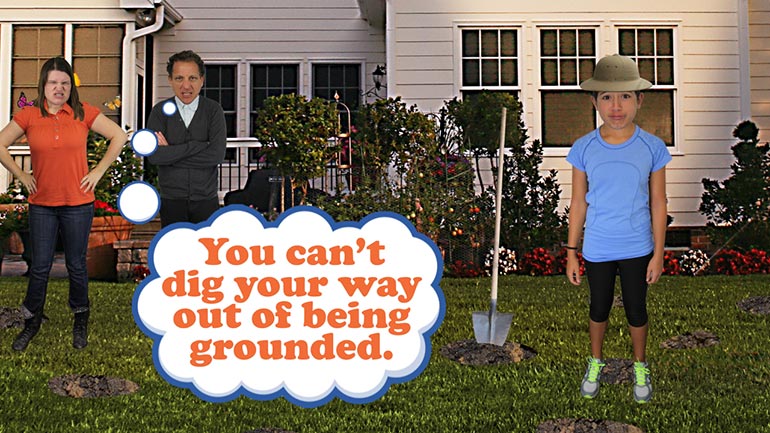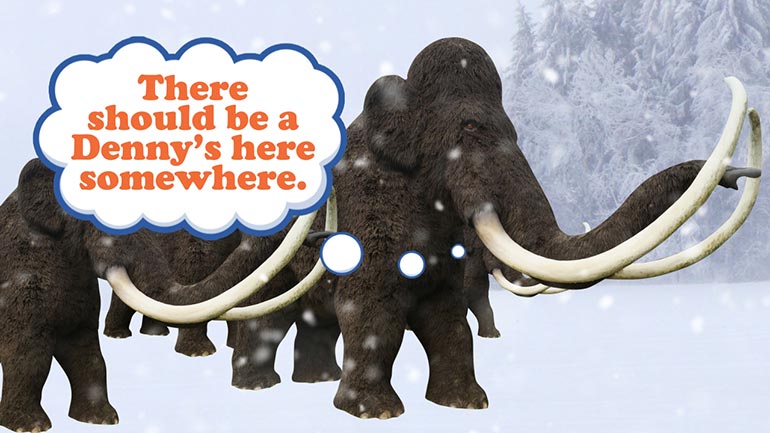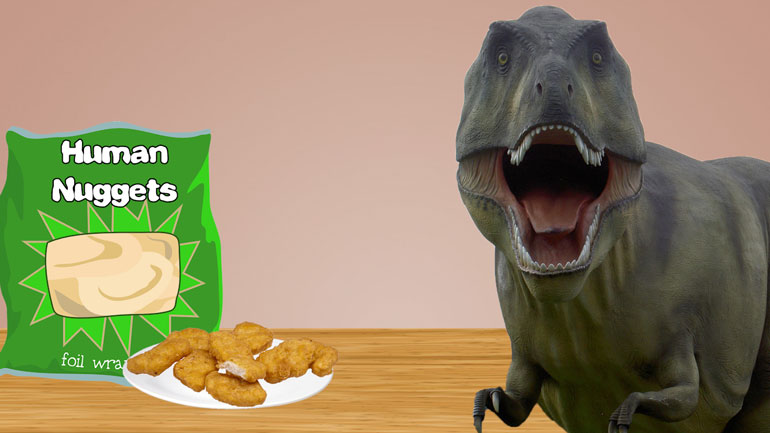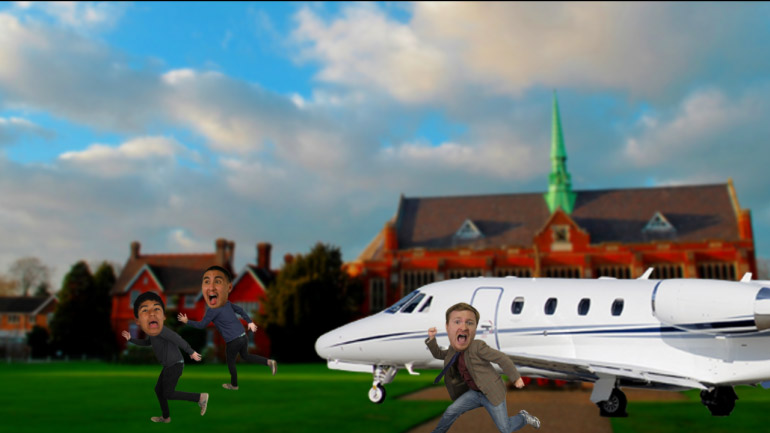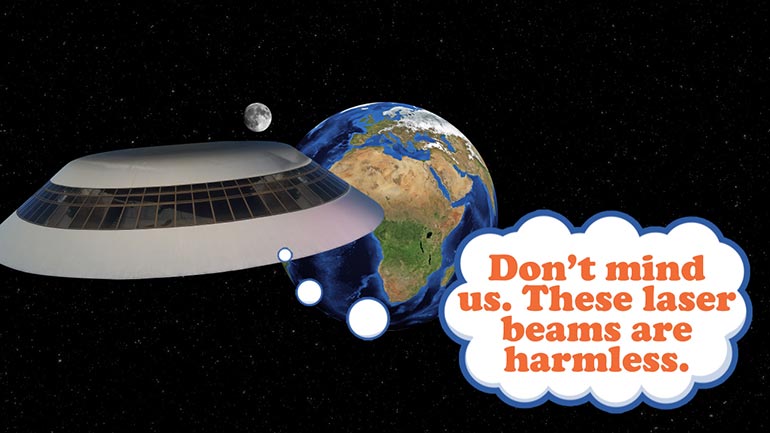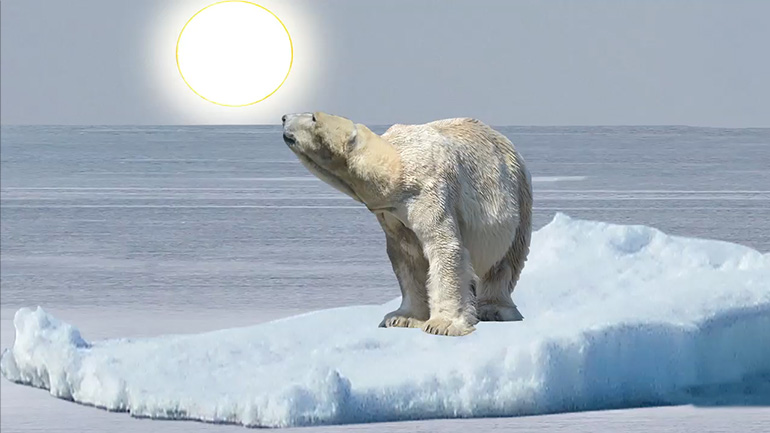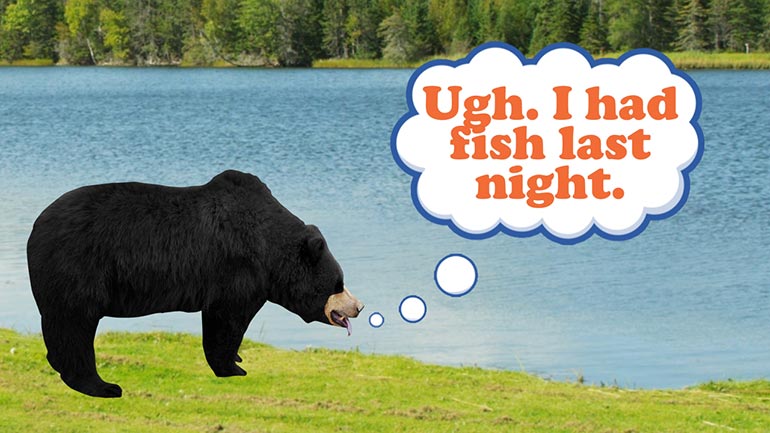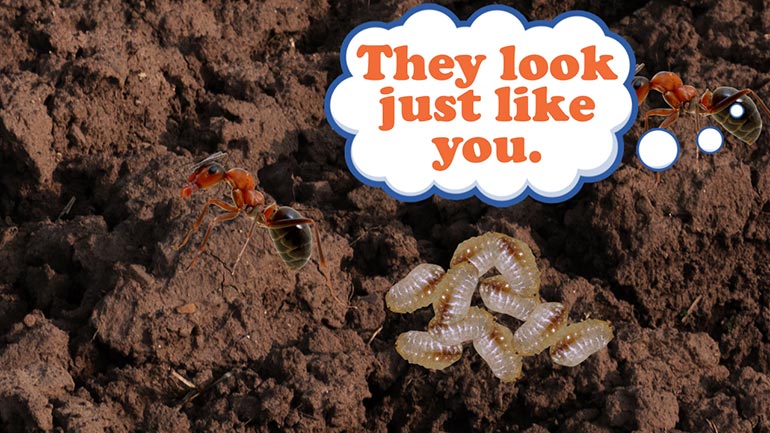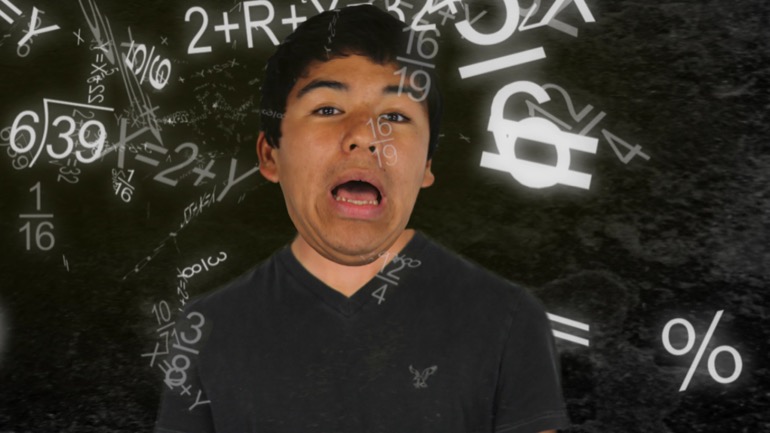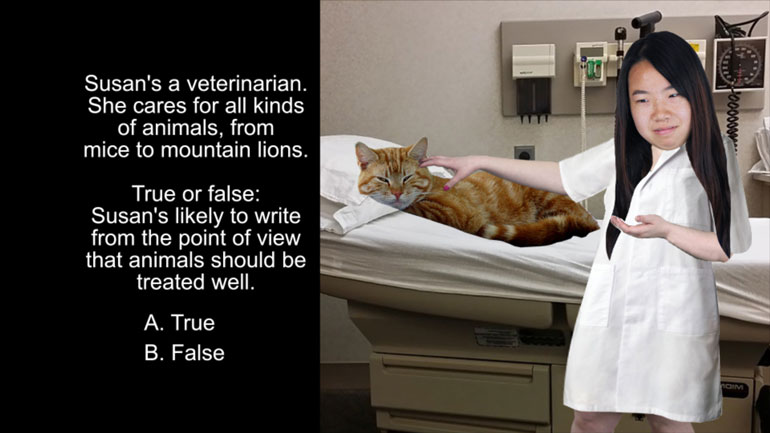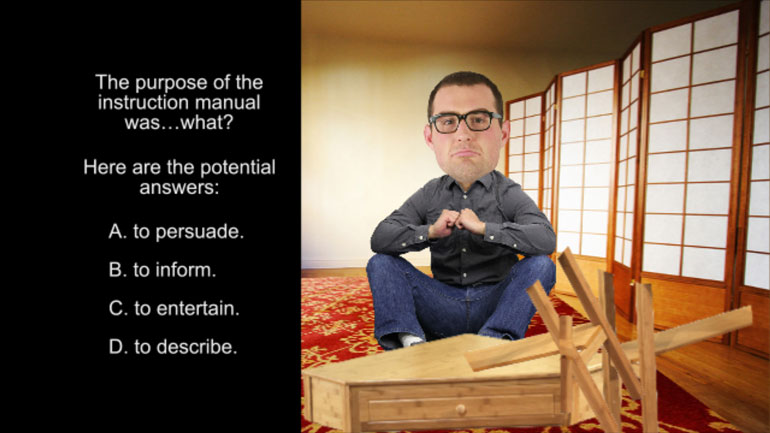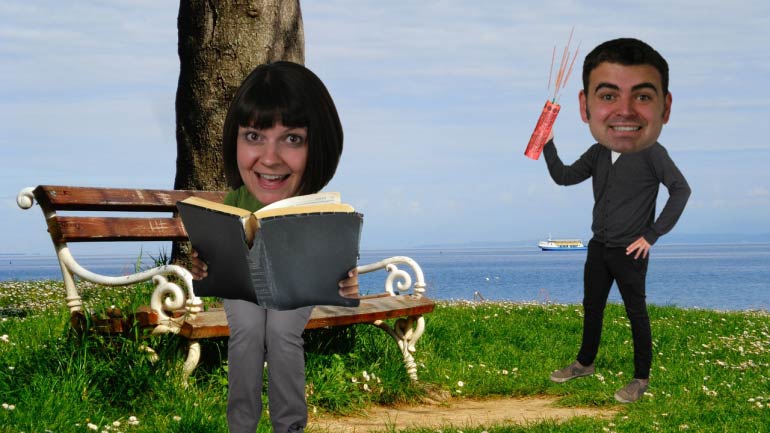ShmoopTube
Where Monty Python meets your 10th grade teacher.
Search Thousands of Shmoop Videos
Science Videos 21 videos
Today's lesson is on the rock cycle. Spoiler alert: it's way less effective at getting you to school than a bicycle. There's a reason wheels are ma...
We wanted to make a video about sedentary rocks, but we couldn't get lazy uncle Rocky off the couch. Oh well. We'll teach you about sedimentary roc...
Today we're bringing you the opposite of Jurassic Park—how living things become fossils. Okay okay, it might not be quite as fun...but hey, at le...
Science 3: Ice Age 26 Views
Share It!
Description:
Did you know that Ice Age movie was actually based on real events? It was. Well, except for the group of animals being able to talk to each other. And not eat each other. And there were also dinosaurs in the movie. Okay, fine, so it was pretty much just the setting.
Transcript
- 00:04
[Coop and Dino singing]
- 00:13
If you live in a part of the country that has a real winter... [Woman standing in the rain]
- 00:16
And no, three days of drizzle doesn't count, California...
- 00:19
Then you've probably gotten out of bed in February, stared at a blanket of dirty snow
- 00:23
and thought... “will this ever end??” [Man shivering in snow]
Full Transcript
- 00:25
The answer is no.
- 00:27
This is your life now.
- 00:28
Winter forever.
- 00:29
…Just kidding.
- 00:29
Of course winter ends!
- 00:30
If it didn't that friendly little groundhog would be out of a job! [Groundhog laying on the snow]
- 00:33
And then five months later in July, you'll be sweating buckets and counting down the
- 00:37
days until winter. [Boy sweats and falls into buckets]
- 00:38
But throughout our planet's history, there have been a few times when the animals living
- 00:42
here really did have to wonder if winter would ever end...
- 00:45
Yup.
- 00:46
There were times when summer didn't come the next season. [Squirrels at Nutty's gravestone]
- 00:48
Or the next year.
- 00:49
Or for an entire lifetime…
- 00:51
…We guess Puxatawney Phil was cashing in his vacation hours.
- 00:54
Anyway, these seemingly endless winters have a name…yup, we're talking about ice ages!
- 00:59
They've happened four or five times in the lifespan of Planet Earth. [Coop discussing ice ages]
- 01:02
Luckily, we're not in one of those right now.
- 01:04
In fact, we're currently in the “warming phase” after the latest ice age that occurred.
- 01:09
So how do we know that these ice ages even really occurred?
- 01:12
The same way we know about so much of the Earth's past: Instagram! [Person checks instagram post on phone]
- 01:16
…just joshin'.
- 01:17
It's actually through fossil evidence!
- 01:18
No, we haven't found fossilized ice…and unfortunately there weren't thermometers back
- 01:22
then for us to dig up and take a look at. [A thermometer on top of a fossil]
- 01:25
Instead, we look at the fossils from Ice Age animals to understand how they lived, and
- 01:29
specifically, how they migrated.
- 01:31
Because just like birds that fly south for the winter today, animals back then were forced [Bird flying south]
- 01:35
to migrate to find food and a better habitat – and by finding evidence of that, we can
- 01:39
determine when ice ages occurred.
- 01:41
We're also able to discover how animals migrated across ice or bridges of land that no longer [Polar bear family in the snow and snow melts]
- 01:46
exist – another good sign that things were a lot more frozen than they are today.
- 01:50
Scientists can also look to glaciers to learn about ice ages. [Dino discussing glaciers]
- 01:53
Glaciers are large bodies of ice, sometimes miles and miles long, that formed when water
- 01:58
froze due to extremely cold temperatures.
- 02:00
These glaciers move very, very slowly – so slow that you can't even tell they're moving [Girl looking at glacier with binoculars]
- 02:05
by looking at them.
- 02:06
We're talking slower than grandma going up the stairs.
- 02:09
But while their movement is slow, it certainly isn't weak: in fact, glaciers often have the
- 02:14
power to carve out mountains and valleys, sometimes leaving giant boulders behind them.
- 02:19
All of this evidence tells us tons about the ice ages that have occurred throughout the [Coop teaching the ice age evidence]
- 02:22
history of our planet, forcing animals to move, killing many others off, and creating
- 02:26
gigantic glaciers that sculpt the landscape of the Earth.
- 02:29
It all sounds pretty inconvenient to us…but it can't have been all bad. [Wolly Mammoth migrating]
- 02:34
Think of all the great skiing and snowboarding those ice age animals got to do! [Squirrels skiing]
Related Videos
We wanted to make a video about sedentary rocks, but we couldn't get lazy uncle Rocky off the couch. Oh well. We'll teach you about sedimentary roc...
Today we're bringing you the opposite of Jurassic Park—how living things become fossils. Okay okay, it might not be quite as fun...but hey, at le...
ELA Drills, Beginner: Point of View. Is the statement in the video true or false?
ELA Drills, Beginner: Textual Analysis 1. The purpose of the instruction manual was...what?
ELA Drills, Beginner: Point of View 3. Which sentence in the passage best shows the narrator's point of view on the topic of Chelsea Simpson?


